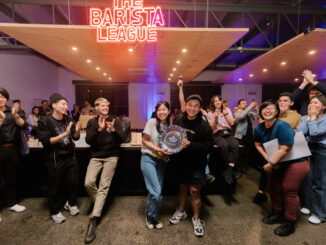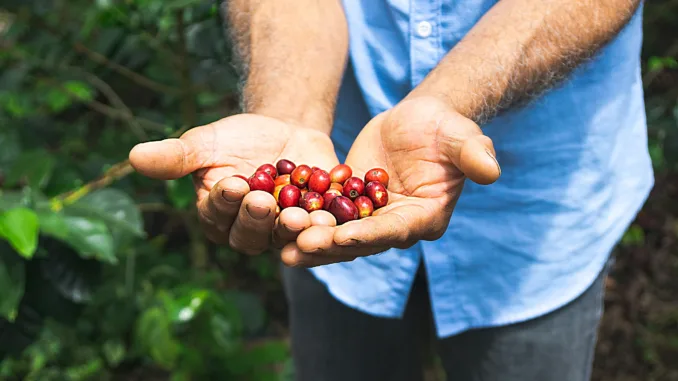
We explore how Travesía is making a positive impact on the specialty-coffee industry in Colombia.
BY VASILEIA FANARIOTI
SENIOR ONLINE CORRESPONDENT
Photos courtesy of Ana Gómez
When I visited Bogotá, I was amazed by how much the city has to offer in terms of specialty coffee. One of my favorite spots was El Pergolero, a beautiful coffee shop in the heart of the city. There, I had the chance to sit down and chat with one of the owners, Alejandro Ospina, and learn all about their company, Travesía.
The company has created many projects to positively impact Colombia’s specialty-coffee industry. From creating a specialty-coffee brand and publishing a book about Colombia’s coffee farms to making a positive social and environmental impact, Travesía has worked hard over the years to promote the consumption of specialty coffee in Colombia in a responsible way.
Alejandro told me about these projects and shared his vision for specialty coffee in Colombia—read on to discover the amazing work they are doing!
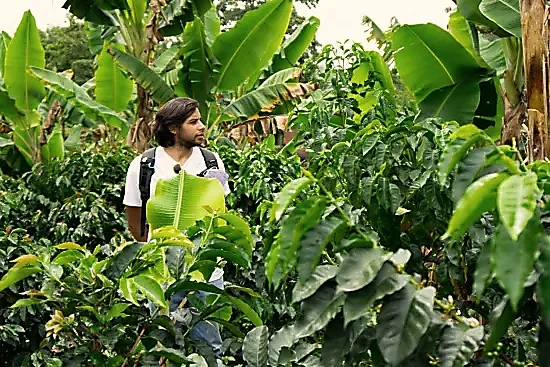
From Thesis Research to a Specialty-Coffee Company
Alejandro did a thesis for his degree in economics, in which he researched ways to increase income and welfare for coffee farmers in Colombia. He wanted to find a way to promote the consumption of specialty coffee in his country.
“During my thesis research, I learned about specialty coffee and realized that Colombia is one of the world’s biggest and most recognized producers of specialty coffee. But we didn’t consume almost any of it. So I was able to meet several people that worked in the small industry of specialty-coffee service in Bogotá. And as I like to say, I had for the first time a real cup of Colombian coffee.”
With limited resources, Alejandro and his brother started Travesía. They launched a website where people could book tours with them to learn about Colombian coffee, a blog, and a crowdfunding campaign. The money they collected enabled them to interview coffee farmers around the country. Carlos, Alejandro’s brother, used this material to write a nonfiction book about coffee farmers in Colombia, with the 500 copies they published selling out within six months.
Since then, the team has launched a few projects. Banna is their specialty-coffee brand. EatCoffee is a company that focuses on new ways of consuming coffee. On top of that, Travesía has been offering consulting services for industry professionals and focusing on social and environmental initiatives.
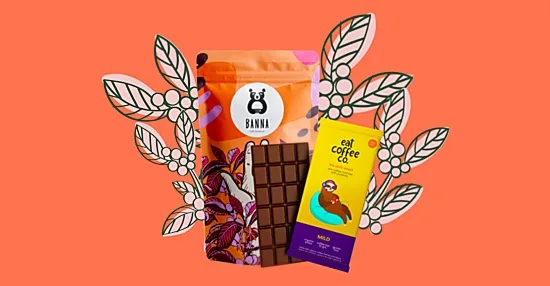
Navigating Successes and Challenges
Banna Coffee has seen great success in the industry, with its products gaining recognition from both customers and other brands. They believe in a collaborative approach; sharing their insight and experience with other businesses is essential for them.
“We love seeing new brands popping up every day and sharing our knowledge with them. This motivates us to continue innovating in the industry,” Alejandro says. ”The success of our products brought us recognition so that new people in the industry searched for our advice to develop their projects in the industry. It is very rewarding being able to collaborate on so many projects.”
The Sloth Snack, EatCoffee’s first product, has also gained significant recognition for its good taste within the specialty-coffee sector in Colombia. What’s more, Carlos sold the rights to his book, celebrating Colombian coffee farmers and their diverse stories, to a gastronomy publisher, with hopes to find an English translator soon. This will allow them to share the stories of Colombian coffee farmers all over the world.
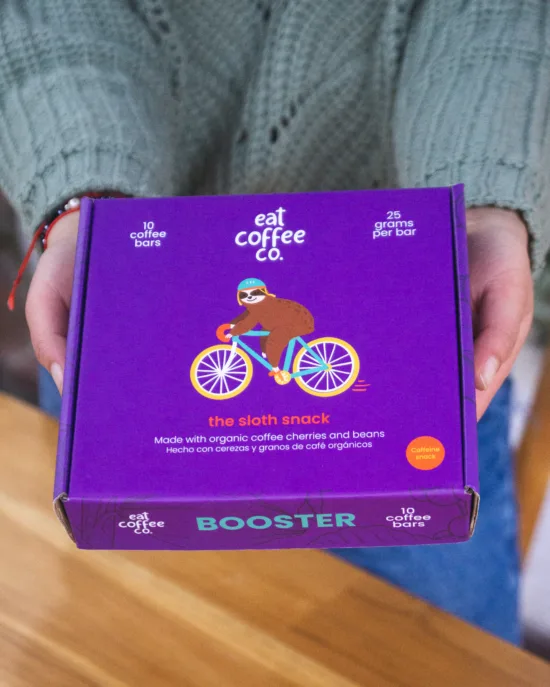
Alejandro explains that the biggest challenge has been producing all these projects without financial support. Despite this, they have been investing all of their profits in developing new projects, trying to innovate inside the industry to make a positive social and environmental impact.
“Another challenge is trying to convince Colombian consumers that there is better coffee than the Colombian commercial coffee they find in the supermarket,” Alejandro says. ”But I know we’re competing with a very different range of prices. While a specialty cup of coffee can cost you around $2 USD in Bogotá, a regular (and not very good) cup of coffee costs around 40 or 50 cents … (a) huge difference if you take into account the level of income in the country.”
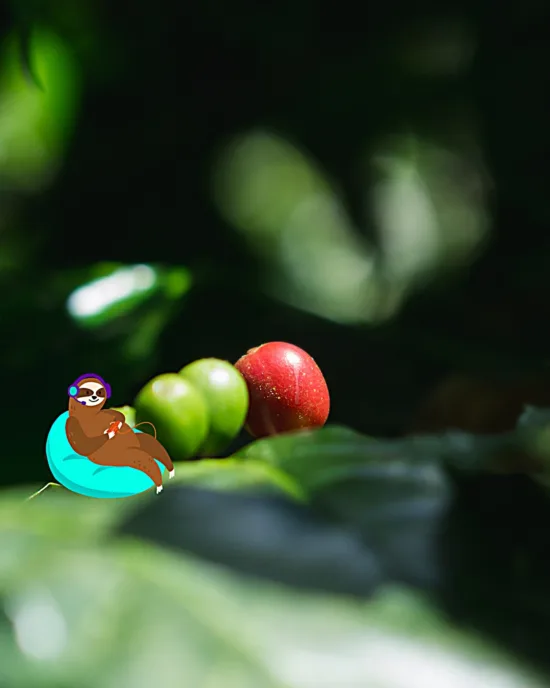
Plans for the Future
In the future, Travesía is looking to extract value from the entire biomass of coffee and use it in innovative ways. One example is their coffee bar, made from coffee fruit, mucilage, parchment, and beans, making it a zero-waste product. Additionally, they are promoting coffee-based products with no Co2 emissions and minimum water usage to help reforestation.
Travesía pays coffee farmers three to four times more than their usual income by selling green coffee to the Colombian Coffee Growers Federation. They believe this business model has the potential to be scaled and replicated in other coffee-growing countries, not just Colombia, and they hope to spread their success to the entire region.
ABOUT THE AUTHOR
Vasileia Fanarioti (she/her) is a senior online correspondent for Barista Magazine, and a freelance copywriter and editor with a primary focus on the coffee niche. She has also been a volunteer copywriter for the I’M NOT A BARISTA NPO, providing content to help educate people about baristas and their work. You can follow her adventures at thewanderingbean.net.



